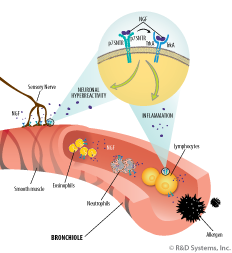Relationship begins with your birth family and spirals outward to include friendship, love, parenting, work, and spiritual development. When you Focus on asthma as sociorelational, you might ask yourself who you are allergic to, as well as what. For example: Is it the feather filling in your mother’s (sister’s, friend’s) down sofa that makes you wheeze? Or is it your relationship with the person, or persons, who live there and what this embodies? In all likelihood, it’s both. This doesn’t imply that you should blame someone else for your problem. Whether it be asthma or any other difficulty, once you recognize the importance of relationship in healing (and in healing relationships) you may begin to consider this disease from a more integrated stance — one that encourages you to look at the bigger picture. When you begin to watch, to listen, and to be in the present moment, you may discover uncharted territory that you can now claim for your own. 
Suffocated by Love with Viagra
Melanie is an asthmatic who has been in a difficult, unsatisfying marriage for sixteen years. From the day she married Alan, she felt like she couldn’t breathe. Melanie knew the relationship was stifling and that it would benefit her health to leave, and she had been on the verge of doing this many times in the past. But Melanie was torn apart by two opposing wishes — one to stay, thus ensuring familiarity no matter how painful the status quo, the other to go, which involved unseating herself and risking the unknown.
When Melanie’s asthma surfaced in acute form, it was the knock at the door that she had been dreading. Her dilemma had begun long before when her Committee convinced her that life was supposed to be a certain way — that she needed the security and prestige of being married; that her children had to attend the right schools and live in the best neighborhood; and that she was ill prepared to face life on her own. Melanie had made up a story about the future and was intent on living it out no matter what. She hated staying, and she was afraid of leaving. So she remained stuck in a situation that took her breath away. By resisting the truth, she became the slave of the Committee. And by refusing to risk the discomfort of being in the “don’t know” space, she forfeited both her freedom and health. Cheap generic viagra medications online in Canada – www.hqcanadianpharmacy.com
Melanie’s error is shared by many of us who confuse aloneness with loneliness, and separateness with isolation. We are attached to the Committee’s view of how life should be; we fear loss, deny the truth, refuse to take responsibility, and resist the changes that allow us to attain freedom. Being in relationship begins by Focusing on the relationship you have with yourself. It’s not narcissism but necessity to look in the mirror and say (or at least think), “I like being me.” There is life beyond the addictive, pop psychology of the “inner child’’ that complains about what it didn’t get and blames parents for the ways they “failed” us. By acknowledging the need to release the past and by Focusing on who you are as an adult, you move toward forgiveness and acceptance of yourself and others, right here, right now. In our practice of this work we are fond of the saying: “I’m not okay. You’re not okay. And that’s okay.” It’s right up there with “I don’t know.” You see, if we don’t need to be okay all the time, and we don’t weigh ourselves down with having to know the answers, it’s a lot easier to breathe.